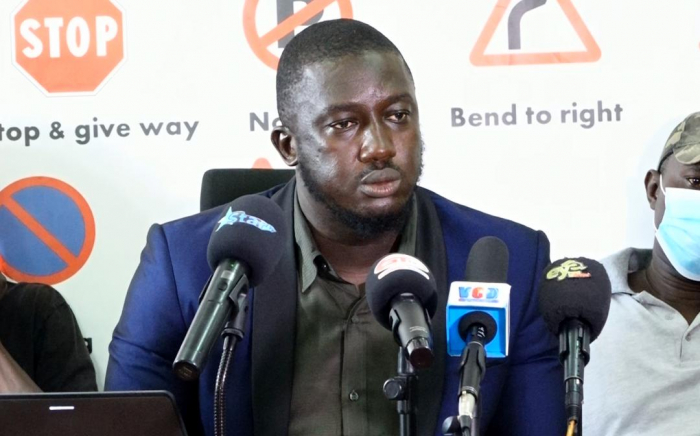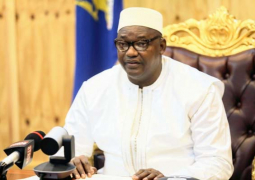
Ceesay made these remarks on 2nd June 2022 at TANGO conference hall during a national road safety dialogue organised by Road Safety First and funded by Coastal Security Limited and Coastal Enterprise.
The theme for the dialogue was ‘Combating Road Accidents is Everyone’s Business.’
According to him, licences are being sold like bread in shops, noting that most drivers do not know and do not care traffic laws which are outdated.
He also said that road users do not also respect traffic signs. “The police are not familiar with traffic code and traffic signs or what the Motor Traffic Law says,” he added, saying vehicles are increasing in the country but our road sizes remain the same with no security codes and road signs, no white margin, and no zebra crossing.
He highlighted that there must be road signs to guide people during their journeys. He described the frequent road accidents in the country as crisis and not accidents.
He called for attitudinal change from road users, respect for traffic code and regulations, the establishment of a Road Safety Agency, and the political will towards Road Safety reforms.
Imam Baba Leigh, a prominent religious leader and activist, said “there is a lot of joke in The Gambia with regard to our lives”, saying that: “we are willing to kill and be killed.”
According to him, some of the accidents are caused by ‘big men’ who use their status to violate traffic rules and regulations thereby putting everyone’s life at risk.
He also highlighted the issue of closing traffic for hours when the president is due to travel or return to the country from a trip, saying vehicles are asked to use one lane therefore spending hours in traffic.
“Some passengers are sick while others may want to use a restroom but would be stuck in traffic for hours,” he pointed out.
The human rights defender further stated that such abuses will not be tolerated in the country anymore, saying: “We are citizens and share equal rights.”
“We give privileges to our leaders but let it not be over used,” he also said.
He also raised the issue of Traffic Police Officers stopping drivers on the highways for minutes to ask for their papers thereby obstructing traffic flow.
“If you want to talk to a driver or ask him/her his papers get him/her off the highway and let traffic flow,” he advised them.
He also highlighted on the kind of commercial vehicles used in The Gambia especially the ones called ‘gele-gele’, saying they are meant for light goods transportation for factories and not transporting people.
Ndey Barkurin, executive director for TANGO, described the frequent road accidents in the country as a result of lack of discipline and therefore called on road users to change their attitude. “The Gambia is too small to be ranked the 4th country with the highest road accidents in the world,” she stated.
John Charles Njie, chairperson TANGO, said every Gambian must see themselves as a solution to the problem.
According to chairman Njie, the absence of police at the dialogue shows their lack of commitment to road safety in the country.
“The time the police take greeting us on the road unnecessarily could have been used keeping discipline on our roads,” he said.
He also said that some people drive with impunity and nothing comes out of it. “Until we begin to punish those that default on our roads we will continue to experience problems.”
Bakary K. Manneh, representative of the National Road Authority highlighted the need to have a National Road Safety Policy, road safety data base, improve the quality of road traffic investigation data collection, ensure safe road structure infrastructure, and ensure commercial vehicles in The Gambia are inspected to determine if they are road worthy.




